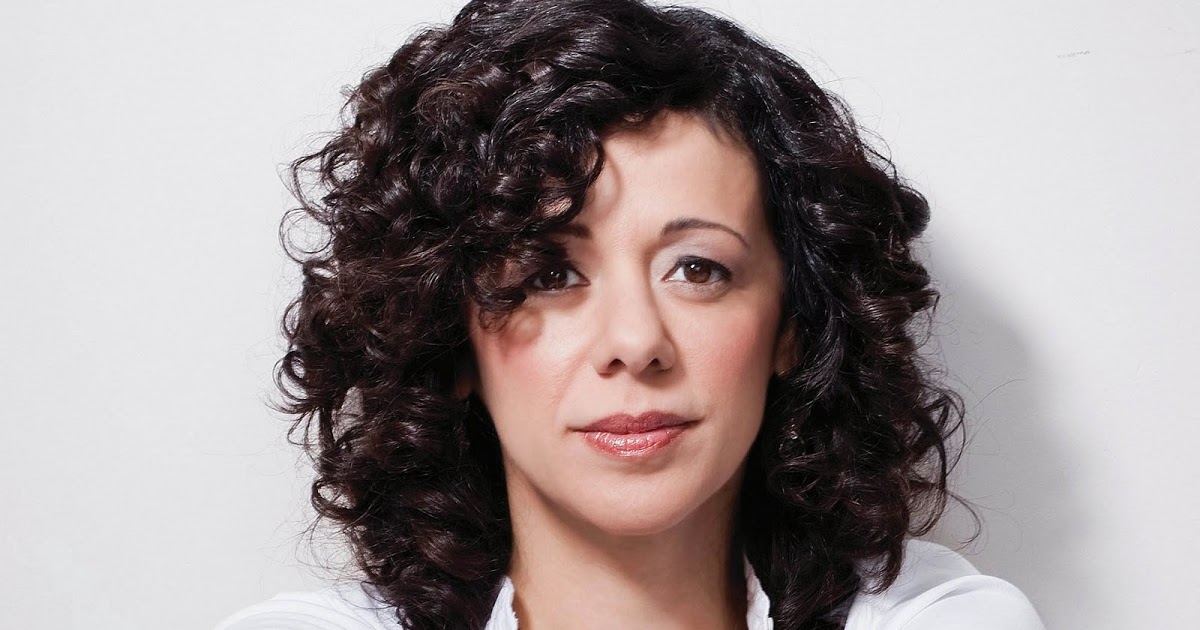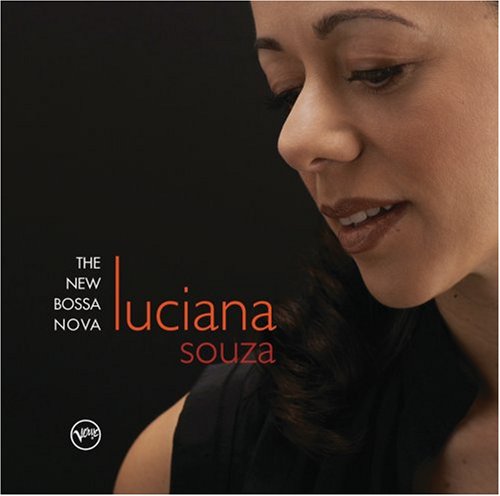by Marshall Bowden
Read Luciana Souza: The Book of Longing
Listening to Luciana Souza on The New Bossa Nova reminds one of the best elements of bossa, the music that American jazz musicians and listeners fell in love with some fifty years ago. Souza’s voice is so tightly focused, free of distracting embellishments or unnecessary ornamentation, that one can listen to it quite apart from the words, as one would the melodic line of a great instrumentalist. Of course, the voice is truly the most intimate of all instruments, because it is created by the singer’s own body and because it is capable of transmitting meaning not only in melodic or harmonic terms, but also in words.

Souza’s wish in putting together The New Bossa Nova project was twofold. First, she wanted to explore bossa nova music in a way that was both accessible to all listeners, yet which would also explore the style in a deep way, paying homage to its Brazilian roots and creators. Second, she wanted to create an album which would weave together thematic strands that centered around the emotion of love and the complexities of that emotion.
The record is very personal for Souza, who is the daughter of influential Brazilian musicians Walter Santos and Tereza Souza. The two were influential bossa composers in the original bossa nova movement, and they later went on to runn both a recording studio, Nossoestudio, and a record label, Som de Gente. “We really wanted to explore the aesthetic of bossa nova,” Souza states. “Because it’s a style that’s 50 years old, we felt it would be nice to re-introduce it to people, but in a different way. “

The New Bossa Nova includes performances of songs by Joni Mitchell (“Down to You”), James Taylor (“Never Die Young”), Leonard Cohen (“Here It Is”), Sting (“When We Dance”), Elliott Smith (“Satellite”), Steely Dan (“Were You Blind That Day”), and Randy Newman (“Living Without You”). There is also a version of Antonio Carlos Jobim’s classic “Waters of March” and two new songs written for the project: “You and the Girl” by Souza and Larry Klein, and “Love Is For Strangers,” penned by Klein and Steely Dan’s Walter Becker.
The list of musicians accompaying Souza is impressive, and definitely helps her to both pay homage to and put a new spin on the traditional bossa nova. Tenor saxophonist Chris Potter, guitarist Romero Lubambo, pianist Edward Simon, bassist Scott Colley, vibraphonist Matt Moran, and drummer Antonio Sanchez have just the right touch for this project.
At age 41, Souza is, in many respects, a known entity whose work has always followed its own path. Besides the Bishop and Neruda recordings her discography includes two albums of Brazilian music done in intimate duo settings with different guitarists, an album that pondered her Brazilian roots in comparison with her adopted home of New York City, and worked with Osvaldo Golijaz and the Maria Schneider Orchestra.
In many respects, The New Bossa Nova is likely to be the album with the most commercial potential she’s made thus far, one that could break her out of the jazz/world music world into a more mainstream environment. Certainly the involvement of Souza’s husband, producer Larry Klein, brings a very accessible element to the ears of most modern adult listeners. Klein was behind a series of four Joni Mitchell albums cut for Geffen Records that helped move her from pop music to adult crooner as well as Madeleine Peyroux’s two albums Careless Love and Half the Perfect World.
Nonetheless, the album is like most Souza projects in that it is well thought-out, lovingly put together, and perfectly executed. “One of the things I loved about this project is that it’s not a record that I could have made on my own,” says Souza.
“I think it’s a natural evolution from what I’ve been doing all along, but it was also very different and a new challenge. In the past, I’d always produced my own records and been very controlling of my own music. On this one, it was amazing and inspiring to have a collaborator who has so much musical knowledge and music empathy, and who I also love. Larry is remarkable at capturing sounds and capturing the air and space between each instrument. “
“All of the records I’ve done,” Souza concludes, “have been explorations. Bossa nova is definitely an area that I would love to pursue more, but I look at it as opening another door, as opposed to closing the door on the other things I’ve done before. My next record could be something completely different, but I think that I’d like to live with this music for a while longer.”
Regardless of what Luciana Souza decides to do next, it will no doubt be a well-crafted, beautiful performance from a singer whose ability to assimilate the music and attitudes of her adopted U.S. culture into her native Brazilian heritage is both exhilarating and reassuring.